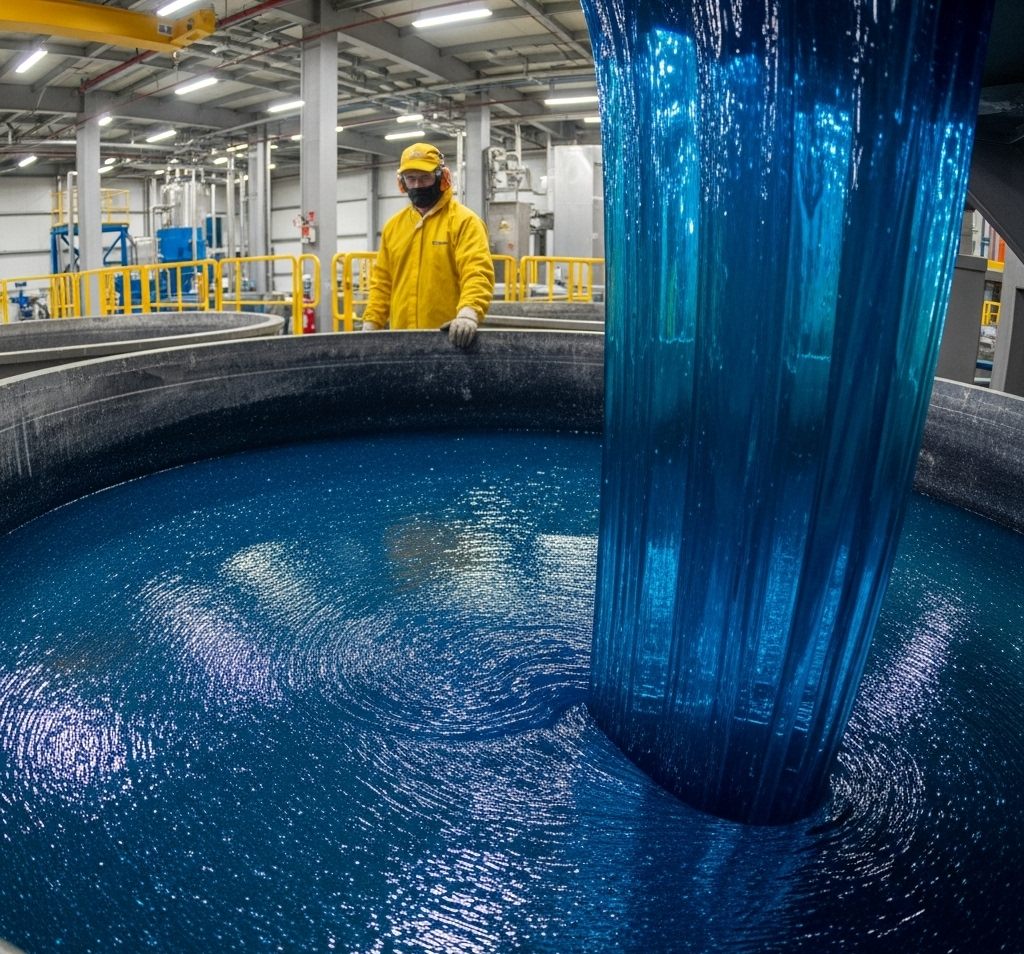
When selecting resin suppliers, procurement teams often focus heavily on cost. While price is a critical factor, it’s not the only one that determines long-term success in sourcing resins for manufacturing. To build reliable, high-quality supply chains, companies must evaluate suppliers on a broader set of criteria, including quality, reliability, sustainability, and technical support. This blog post explores key factors to consider when choosing resin suppliers, ensuring decisions align with operational goals and future-proof your supply chain.
Resin quality directly impacts the performance and durability of end products, whether in plastics, coatings, or composites. Suppliers should provide detailed specifications, including:
Material Properties: Assess tensile strength, flexibility, heat resistance, and chemical stability to ensure the resin meets application requirements.
Batch Consistency: Consistent quality across batches prevents production defects. Request data on quality control processes and certifications like ISO 9001.
Testing and Validation: Ask for test reports or third-party certifications to verify compliance with industry standards, such as ASTM or REACH.
Suppliers with robust quality assurance programs reduce the risk of defects, saving time and costs associated with rework or product failures.
A supplier’s ability to deliver on time and in full is critical to avoiding production delays. Evaluate:
Lead Times: Understand production and delivery schedules. Suppliers with shorter, predictable lead times help maintain lean inventory.
Capacity and Scalability: Ensure the supplier can meet current and future demand. Ask about production capacity and their ability to scale during demand spikes.
Geographic Proximity: Local or regional suppliers may reduce shipping times and costs, while global suppliers might offer cost advantages but face logistical risks like customs delays.
Suppliers with diversified sourcing and contingency plans are better equipped to handle disruptions, such as raw material shortages or geopolitical issues.
Sustainability is increasingly non-negotiable as regulations tighten and customers demand eco-friendly products. When evaluating suppliers, consider:
Sustainable Sourcing: Does the supplier use bio-based or recycled resins? Are their raw materials ethically sourced?
Environmental Certifications: Look for compliance with standards like ISO 14001 or certifications for low-carbon production.
Waste Management: Suppliers with programs to minimize waste or recycle byproducts demonstrate a commitment to sustainability.
Choosing suppliers with green practices not only aligns with corporate social responsibility goals but also future-proofs your supply chain against stricter environmental regulations.
Resins are complex materials, and suppliers should offer more than just a product—they should provide expertise. Key considerations include:
Technical Expertise: Does the supplier offer guidance on resin selection, processing, or troubleshooting? Access to material scientists or engineers can optimize product development.
R&D Capabilities: Suppliers investing in research and development can provide innovative resins tailored to emerging needs, such as lightweight composites or high-performance polymers.
Customization: If your application requires specialized formulations, confirm the supplier’s ability to develop custom resins.
A supplier that acts as a partner in innovation can give your company a competitive edge.
A supplier’s financial health impacts their ability to maintain consistent supply and invest in quality or innovation. Evaluate:
Financial Track Record: Review credit ratings or financial statements to assess stability.
Market Reputation: Research customer reviews, industry reputation, and history of fulfilling contracts.
Long-Term Commitment: Suppliers with a proven track record are more likely to be reliable partners over time.
Partnering with a financially stable supplier reduces the risk of disruptions due to bankruptcy or operational cutbacks.
Resins are subject to strict regulations, especially in industries like automotive, medical, or food packaging. Ensure suppliers:
Meet Regulatory Standards: Verify compliance with regional regulations like FDA, EU REACH, or RoHS.
Provide Documentation: Request safety data sheets (SDS), certificates of analysis (CoA), and other compliance documents.
Mitigate Risks: Assess their approach to supply chain risks, such as geopolitical instability or raw material shortages.
Suppliers with strong compliance and risk management practices help you avoid costly regulatory violations or supply chain disruptions.
Effective communication and support are often overlooked but critical for smooth partnerships. Look for:
Responsiveness: How quickly does the supplier address inquiries or issues? Test their communication during the evaluation process.
Transparency: Suppliers should provide clear information on pricing, lead times, and potential challenges.
After-Sales Support: Post-delivery support, such as handling returns or addressing quality issues, reflects a supplier’s commitment to partnership.
A supplier with strong customer service can resolve issues quickly, minimizing downtime and frustration.
While cost remains a key factor, focusing solely on the lowest price can lead to compromises in quality, reliability, or sustainability. A comprehensive evaluation of resin suppliers should weigh:
Total Cost of Ownership (TCO): Factor in costs related to quality issues, delays, or inefficiencies caused by subpar suppliers.
Long-Term Benefits: Investing in a reliable, innovative supplier may yield savings through improved product performance or reduced waste.
Strategic Alignment: Choose suppliers whose values—such as sustainability or innovation—align with your company’s goals.
Selecting the right resin supplier goes beyond comparing price tags. By prioritizing quality, reliability, sustainability, technical support, and compliance, procurement teams can build resilient supply chains that support long-term success. Take the time to evaluate suppliers holistically, and you’ll find partners who not only meet your needs but also drive innovation and efficiency in your operations.
© 2025 Lasso Supply Chain Software LLC
Get instant access to our report on the Top Procurement Trends of 2025.
Get instant access to our report on the Top Procurement Trends of 2025 by filling out the form below.
